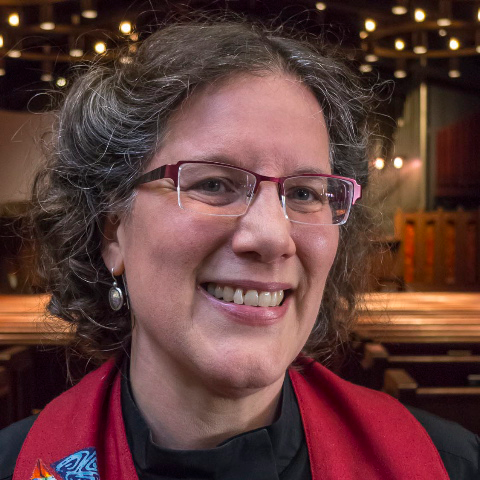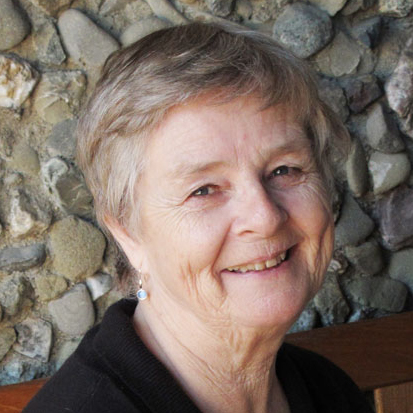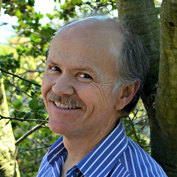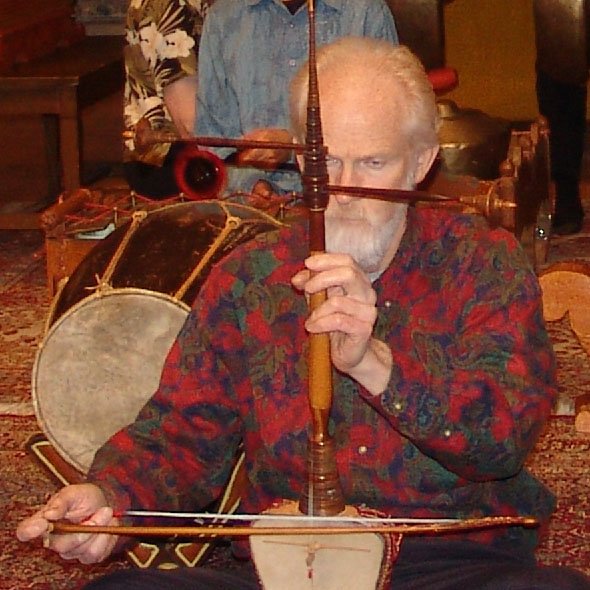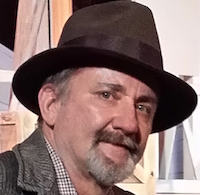My name is Katherine and I’m an alcoholic.
To say those words 2-1/2 years ago required overcoming a lot of shame.
Alcohol, that once-benign social anesthetic, had gradually become a negative force in my life. I had lost the power to stop drinking even though it was no longer working to numb my feelings: my pain over failing to live up to my rigid standards of perfection, my anger with the world for not meeting my ideal of fairness, my frustration with being unable to control my environment and the people in it. I had become self-destructive, self-pitying, self-righteous and self-loathing—and I felt completely alone. How could the solution begin with admitting to something as mortifying as alcoholism?
Let’s consider how human beings foster connection.
We all long for connection, for community. Shame can be thought of as the fear of disconnection, the belief that there is something about us that, if other people know about it, will somehow make us unworthy of love and belonging. I would venture that it’s not just alcoholics and addicts who know this feeling.
The things that cause us shame are sources of excruciating vulnerability. Yet willful vulnerability is a necessary foundation for connection.
The word courage is derived from the Latin cuer, meaning heart. The original meaning of courage was to tell the story of who you are with your whole heart. People who can do this are willing to let go of who they once thought they should be to reveal who they really are. Paradoxically, they achieve true connection by risking authenticity. Their willful vulnerability is rewarded by connection.
It takes courage to admit to an addiction. Admitting to any fault exposes us to the vulnerability people like me used alcohol to hide from. Yet this admission launches the journey to an authentic life. The courage to share your shame forges true connection and community.
The First Step in Alcoholics Anonymous suggests just such an admission: “We admitted we were powerless over alcohol – that our lives had become unmanageable.”
What if, by fully embrace courage and authenticity, you knew that you were entering on a path toward connection and community? That, by sharing your shame and willingly risking vulnerability, you would find love and understanding beyond your wildest dreams?
This is what I have experienced as a grateful recovering alcoholic working the 12 Steps of Alcoholics Anonymous.
Hello, my name is Rhonda S, and I’m a food addict. My drugs are sugar and flour. Although I have never been arrested while under the influence of flour and sugar, my addiction is just as serious and deadly as alcohol, crack, cocaine or heroin. The horrible thing about being addicted to eating is that it is encouraged, legal, and everywhere.
I grew up a fat kid. I got teased through elementary, junior high school, and high school. My grades were poor because ninety-nine percent of my diet was sugar and flour starting with my cereal in the morning. I could not sit still long enough to learn much and was always getting into trouble. Everyone thought I had a learning disability. Medication was mentioned, but never used.
Flour would lead to depression, anxiety, and the feeling of being hung over. Eating these foods made me feel secure and loved even though it had a major effect on my learning process. If upset, I’d use. If I were happy, I’d use. If I was depressed, I’d use. If I got too cold I’d use. I would eat all day long, always rationalizing my eating behaviour.
My mother was also addiction to sugar was horrific. That’s all she had from the time she got up in the morning until the time she went to bed. All day long, every day, she continued to put this substance in her body even after being warned by her doctor that her diabetes was out of control. She died at age 57. Her death certificate said she died of congestive heart failure complicated by diabetes. But I know the truth: My mother died of food addiction. She literally dug her grave one forkful at a time.
Diets did not help me, my mother or me. I needed to change my attitude about life. I needed the 12 steps. While studying these steps, I realized that I didn’t have a food problem, I had a problem with life. I needed a power greater than myself to arrest this addiction and guide me on a spiritual path. I have been clean 13 years. I’ve gone from 205 pounds to 119. My life is good, and for that, I am forever grateful.
My name is Cheri and I’m a compulsive overeater in recovery through the 12-Step program Overeaters Anonymous. I am able to stand here today and say this in large part because another member of this congregation, Elaine M., shared her experience with food addiction at this service two years ago. I’m so grateful to Elaine and all other members of my 12-step fellowship.
What is food addiction? For me, it meant using foods like chocolate, caffeine, sugar, and carbohydrates to alter my moods–to try to change uncomfortable feelings like tiredness, sadness, frustration, or anxiety.
I regularly ate to excess, going through half or two-thirds of a bag, box, or container that was supposed to contain 6, 10, 12 serving sizes. I hid my eating from my family, bingeing on candy by the kitchen trash so I could quickly hide the wrappers. On difficult mornings, I sneaked chocolate before I drove the kids to school. I ate my way through cooking dinner and then ate a full dinner. After dinner, I rewarded myself with ice cream, returning two, three, and four times for “just one more“ serving.” I truly had become, in the words of Step 1, “powerless over food.”
Yet, it’s a long way from Step 1 to Step 3, which reads “[We] made a decision to turn our will and our lives over to the care of God as we understood Him.” (That’s “Him” with a capital “H“!) Well, I had long since rejected that notion of an all-powerful male God in human form, but what to replace Him with?
Over time, and with a lot of help, I’ve become more comfortable with the notion of a Higher Power, although its form is still a Great Mystery to me. On various days, I might call It the Power of Love in the Universe, the Great Spirit, or the Wise Teacher that is within me and within every other person.
Now, in recovery, I don’t have to hide my eating anymore. Somehow, I’m mostly able to eat healthy foods in moderate portions, sitting down, with intention. I try to practice mindful eating, chewing slowly, savoring my food, and being thankful for enough food and all the other blessings of my life. I’m incredibly grateful to have found a Higher Power that has filled a void in me that no amount of food could ever fill. Thank you for allowing me to share with you today.
Good morning. My name is Natalie, and I’m a grateful member of Al-Anon.
It was in middle age that I became painfully aware of the ways that the multi-generational disease of alcoholism in my family of origin had left its marks on my life.
While my mother and father were not alcoholics, they lived out the behaviors of the disease, and alcoholism pervaded my extended family. My memories of family gatherings were of the grownups drinking A LOT, getting into loud arguments, and then passing out. My maternal grandfather, my godfather, and 2 aunts, all died as a direct result of their alcoholism. But no one talked openly about any of this.
Was it any wonder that my ways of relating to others were largely distorted, and brought suffering to myself and those close to me.
Nine-and-a-half years ago – with some reluctance, I’ll honestly say – I walked through the doors of my first Al-Anon meeting, and I knew I was home. I felt almost immediately that I had found the family I had never known. I found others who were trying to find a different way of relating to themselves, each other, and a power greater than themselves.
One of my Al-Anon friends says that recovery is re-covering the self you were born with – the person who is not wounded by growing up with alcoholism.
My journey of recovery in Al-Anon has been a process of finding that core of who I am – with compassion, acceptance, and trust.
I believe I am discovering the person I am meant to be. It is at once a deeply personal and deeply spiritual journey. Deeply personal because it involves healing old wounds through the fellowship of Al-Anon, and the love I have found there. Deeply spiritual because over these past years – through what I can only describe as grace – my trust in a power greater than myself has grown immensely.
The program does not promise perfection, either for me or in my life. But there are many promises that the program has kept, and they continue to unfold…My life is truly blessed in ways I could have imagined a decade ago.
It wasn’t easy to walk through the doors of Al-Anon the first time – and it hasn’t always been easy to work my recovery program. But looking back over the years, it would have been so much harder if I hadn’t.
Thank you.
Journey to Recovery
Katherine H., Rhonda S., Cheri S., and Natalie D.
March 10, 2013
My name is Katherine and I’m an alcoholic.
To say those words 2-1/2 years ago required overcoming a lot of shame.
Alcohol, that once-benign social anesthetic, had gradually become a negative force in my life. I had lost the power to stop drinking even though it was no longer working to numb my feelings: my pain over failing to live up to my rigid standards of perfection, my anger with the world for not meeting my ideal of fairness, my frustration with being unable to control my environment and the people in it. I had become self-destructive, self-pitying, self-righteous and self-loathing—and I felt completely alone. How could the solution begin with admitting to something as mortifying as alcoholism?
Let’s consider how human beings foster connection.
We all long for connection, for community. Shame can be thought of as the fear of disconnection, the belief that there is something about us that, if other people know about it, will somehow make us unworthy of love and belonging. I would venture that it’s not just alcoholics and addicts who know this feeling.
The things that cause us shame are sources of excruciating vulnerability. Yet willful vulnerability is a necessary foundation for connection.
The word courage is derived from the Latin cuer, meaning heart. The original meaning of courage was to tell the story of who you are with your whole heart. People who can do this are willing to let go of who they once thought they should be to reveal who they really are. Paradoxically, they achieve true connection by risking authenticity. Their willful vulnerability is rewarded by connection.
It takes courage to admit to an addiction. Admitting to any fault exposes us to the vulnerability people like me used alcohol to hide from. Yet this admission launches the journey to an authentic life. The courage to share your shame forges true connection and community.
The First Step in Alcoholics Anonymous suggests just such an admission: “We admitted we were powerless over alcohol – that our lives had become unmanageable.”
What if, by fully embrace courage and authenticity, you knew that you were entering on a path toward connection and community? That, by sharing your shame and willingly risking vulnerability, you would find love and understanding beyond your wildest dreams?
This is what I have experienced as a grateful recovering alcoholic working the 12 Steps of Alcoholics Anonymous.
Hello, my name is Rhonda S, and I’m a food addict. My drugs are sugar and flour. Although I have never been arrested while under the influence of flour and sugar, my addiction is just as serious and deadly as alcohol, crack, cocaine or heroin. The horrible thing about being addicted to eating is that it is encouraged, legal, and everywhere.
I grew up a fat kid. I got teased through elementary, junior high school, and high school. My grades were poor because ninety-nine percent of my diet was sugar and flour starting with my cereal in the morning. I could not sit still long enough to learn much and was always getting into trouble. Everyone thought I had a learning disability. Medication was mentioned, but never used.
Flour would lead to depression, anxiety, and the feeling of being hung over. Eating these foods made me feel secure and loved even though it had a major effect on my learning process. If upset, I’d use. If I were happy, I’d use. If I was depressed, I’d use. If I got too cold I’d use. I would eat all day long, always rationalizing my eating behaviour.
My mother was also addiction to sugar was horrific. That’s all she had from the time she got up in the morning until the time she went to bed. All day long, every day, she continued to put this substance in her body even after being warned by her doctor that her diabetes was out of control. She died at age 57. Her death certificate said she died of congestive heart failure complicated by diabetes. But I know the truth: My mother died of food addiction. She literally dug her grave one forkful at a time.
Diets did not help me, my mother or me. I needed to change my attitude about life. I needed the 12 steps. While studying these steps, I realized that I didn’t have a food problem, I had a problem with life. I needed a power greater than myself to arrest this addiction and guide me on a spiritual path. I have been clean 13 years. I’ve gone from 205 pounds to 119. My life is good, and for that, I am forever grateful.
My name is Cheri and I’m a compulsive overeater in recovery through the 12-Step program Overeaters Anonymous. I am able to stand here today and say this in large part because another member of this congregation, Elaine M., shared her experience with food addiction at this service two years ago. I’m so grateful to Elaine and all other members of my 12-step fellowship.
What is food addiction? For me, it meant using foods like chocolate, caffeine, sugar, and carbohydrates to alter my moods–to try to change uncomfortable feelings like tiredness, sadness, frustration, or anxiety.
I regularly ate to excess, going through half or two-thirds of a bag, box, or container that was supposed to contain 6, 10, 12 serving sizes. I hid my eating from my family, bingeing on candy by the kitchen trash so I could quickly hide the wrappers. On difficult mornings, I sneaked chocolate before I drove the kids to school. I ate my way through cooking dinner and then ate a full dinner. After dinner, I rewarded myself with ice cream, returning two, three, and four times for “just one more“ serving.” I truly had become, in the words of Step 1, “powerless over food.”
Yet, it’s a long way from Step 1 to Step 3, which reads “[We] made a decision to turn our will and our lives over to the care of God as we understood Him.” (That’s “Him” with a capital “H“!) Well, I had long since rejected that notion of an all-powerful male God in human form, but what to replace Him with?
Over time, and with a lot of help, I’ve become more comfortable with the notion of a Higher Power, although its form is still a Great Mystery to me. On various days, I might call It the Power of Love in the Universe, the Great Spirit, or the Wise Teacher that is within me and within every other person.
Now, in recovery, I don’t have to hide my eating anymore. Somehow, I’m mostly able to eat healthy foods in moderate portions, sitting down, with intention. I try to practice mindful eating, chewing slowly, savoring my food, and being thankful for enough food and all the other blessings of my life. I’m incredibly grateful to have found a Higher Power that has filled a void in me that no amount of food could ever fill. Thank you for allowing me to share with you today.
Good morning. My name is Natalie, and I’m a grateful member of Al-Anon.
It was in middle age that I became painfully aware of the ways that the multi-generational disease of alcoholism in my family of origin had left its marks on my life.
While my mother and father were not alcoholics, they lived out the behaviors of the disease, and alcoholism pervaded my extended family. My memories of family gatherings were of the grownups drinking A LOT, getting into loud arguments, and then passing out. My maternal grandfather, my godfather, and 2 aunts, all died as a direct result of their alcoholism. But no one talked openly about any of this.
Was it any wonder that my ways of relating to others were largely distorted, and brought suffering to myself and those close to me.
Nine-and-a-half years ago – with some reluctance, I’ll honestly say – I walked through the doors of my first Al-Anon meeting, and I knew I was home. I felt almost immediately that I had found the family I had never known. I found others who were trying to find a different way of relating to themselves, each other, and a power greater than themselves.
One of my Al-Anon friends says that recovery is re-covering the self you were born with – the person who is not wounded by growing up with alcoholism.
My journey of recovery in Al-Anon has been a process of finding that core of who I am – with compassion, acceptance, and trust.
I believe I am discovering the person I am meant to be. It is at once a deeply personal and deeply spiritual journey. Deeply personal because it involves healing old wounds through the fellowship of Al-Anon, and the love I have found there. Deeply spiritual because over these past years – through what I can only describe as grace – my trust in a power greater than myself has grown immensely.
The program does not promise perfection, either for me or in my life. But there are many promises that the program has kept, and they continue to unfold…My life is truly blessed in ways I could have imagined a decade ago.
It wasn’t easy to walk through the doors of Al-Anon the first time – and it hasn’t always been easy to work my recovery program. But looking back over the years, it would have been so much harder if I hadn’t.
Thank you.







